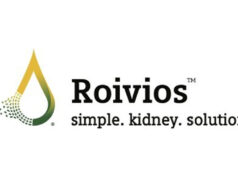 In a new retrospective cohort study, researchers at Beth Israel Deaconess Medical Center (BIDMC; Boston, USA) have examined the effects of the treatment of elevated blood pressure in more than 66,000 older adults who were hospitalised for non-cardiac conditions. The team found that receiving intensive antihypertensive treatment as an inpatient was linked with greater risk of adverse events, among them acute kidney injury and cardiac injury, particularly for patients receiving the medication intravenously as opposed to orally.
In a new retrospective cohort study, researchers at Beth Israel Deaconess Medical Center (BIDMC; Boston, USA) have examined the effects of the treatment of elevated blood pressure in more than 66,000 older adults who were hospitalised for non-cardiac conditions. The team found that receiving intensive antihypertensive treatment as an inpatient was linked with greater risk of adverse events, among them acute kidney injury and cardiac injury, particularly for patients receiving the medication intravenously as opposed to orally.
The findings, published in JAMA Internal Medicine, do not support treating asymptomatic elevated blood pressure in hospitalised older adults and, according to a press release, “highlight the need for further study of best practices for management of inpatient blood pressure”.
“While the benefits of lowering chronically elevated blood pressure in the outpatient setting are clearly defined and include reductions in mortality and cardiovascular events, better evidence is needed to inform clinical decision-making regarding inpatient blood pressure management,” said corresponding author Timothy S Anderson (BIDMC, Boston, USA). “In the hospital, blood pressure is often elevated due to pain, fever, anxiety, new medication and other hospital factors. It is not clear that treating transient elevations with blood pressure medications is helpful, it may instead result in overtreatment.”
Using clinical and pharmacy data from the US Veterans Health Administration (VHA), Anderson and colleagues compared outcomes of hospitalised patients with elevated blood pressure who received intensive blood pressure treatment in the first 48 hours after admission to those who did not. The primary outcome was a composite of adverse effects that included acute kidney injury, as well as inpatient mortality, cardiac injury and others.
The cohort included 66,140 older adults, primarily male, who were hospitalised for non-cardiac reasons and had elevated blood pressures in the first 48 hours of hospitalisation. One in five patients (or more than 14,000 patients) received intensive treatment for blood pressure, defined as additional antihypertensive medications the patient had not been taking at home prior to hospitalisation. Of this group, 18% (or more than 2,500 patients) received antihypertensive medication intravenously.
Compared to hospitalised patients with elevated blood pressure who did not receive intensive treatment within the first 48 hours of hospitalisation, patients who received antihypertensive medication were at greater risk for the composite adverse outcome measure. Receiving antihypertensives intravenously further heightened this risk.
“These findings suggest that the common practice of acutely treating asymptomatic inpatient blood pressure could be harmful and the use of intravenous antihypertensives in particular should be discouraged,” said Anderson. “Until we have more definitive randomised clinical trial data, our findings suggest that the safest path forward is likely to rethink the underlying reason for inpatient blood pressure measurement and reorient clinical practice. In combination, these findings suggest that pharmacologic treatment of asymptomatic elevated inpatient blood pressure should be the exception rather than the rule.”











